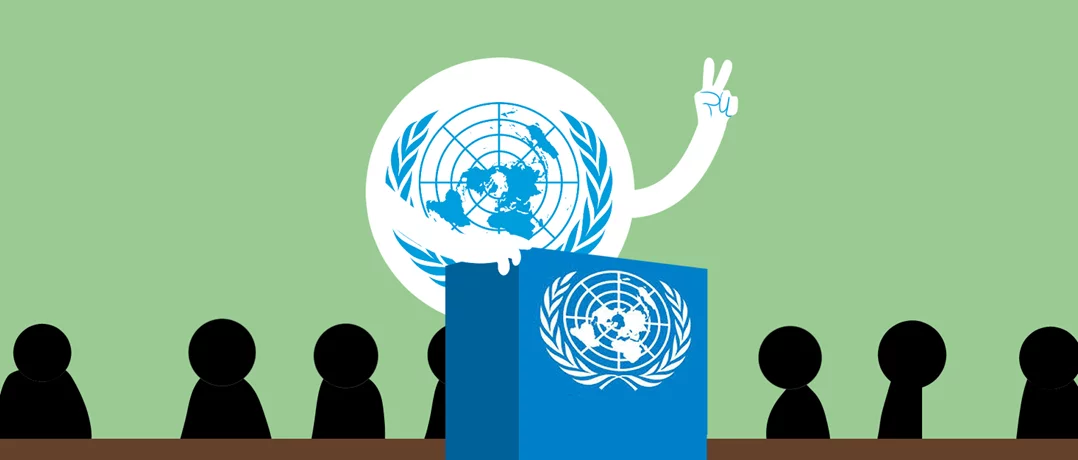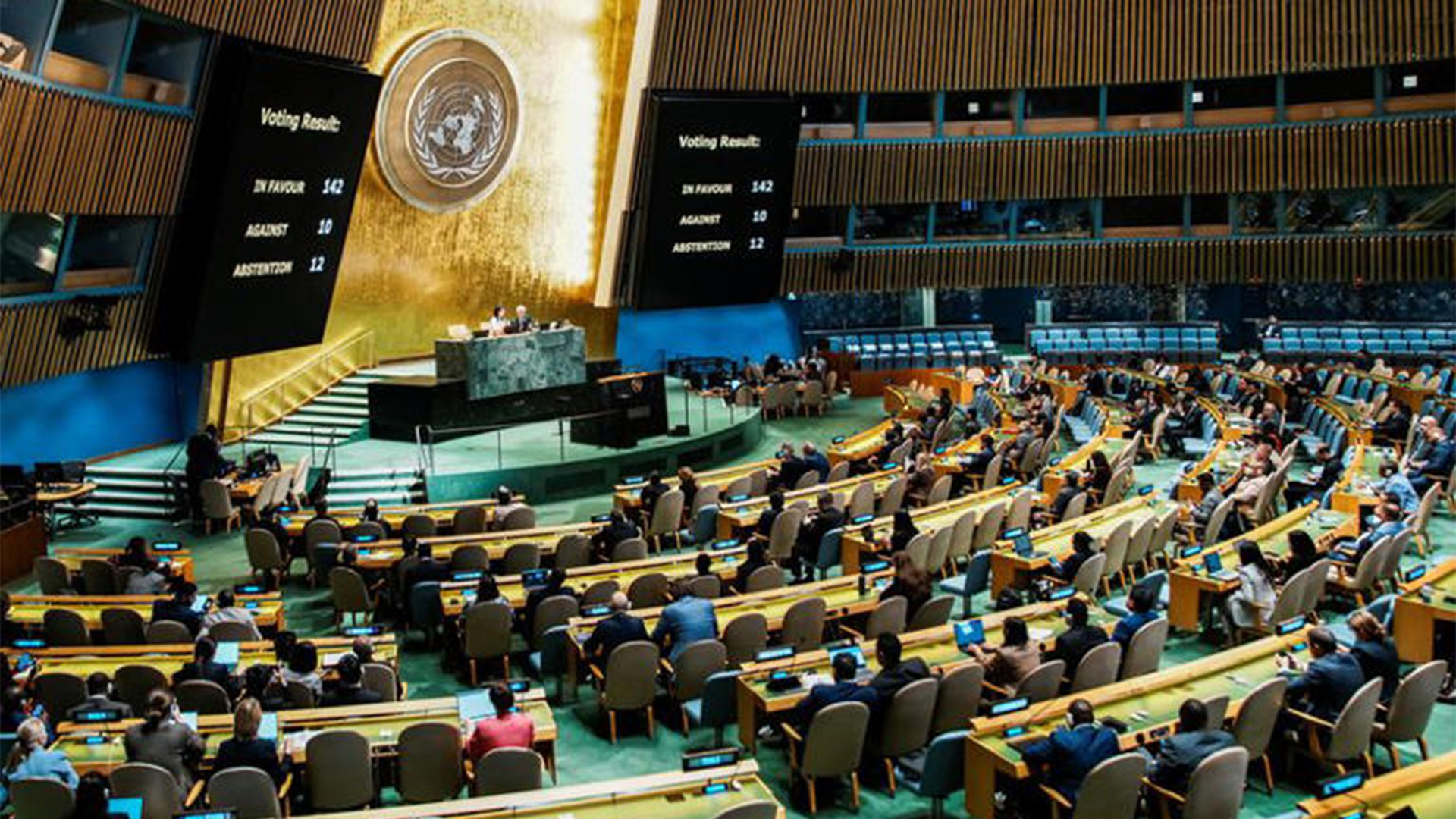As the UN General Assembly convenes, Palestinian recognition grows, but entrenched politics and international hesitation keep the two-state solution largely symbolic.
Diplomacy or delusion? Why the two-state solution still lacks a path forward
Diplomacy or delusion? Why the two-state solution still lacks a path forward


As world leaders prepare for the United Nations General Assembly’s high-level week, the question of Palestine once again takes center stage. Despite decades of international calls for a two-state solution, progress remains elusive. With entrenched Israeli politics, unwavering U.S. support for Israel, and cautious European engagement, the upcoming diplomatic initiatives risk being largely symbolic.
Momentum is growing for Palestinian recognition on the world stage. On Sunday, Britain, Canada, Australia, and Portugal became the first G7 countries to officially recognize a Palestinian state, following nearly two years of war in Gaza and just ahead of the UN summit.
So far, 145 of the UN’s 193 members have recognized Palestine, including Russia, most Arab countries, nearly all of Africa and Latin America, and major Asian powers like India and China. Algeria was the first in 1988, shortly after PLO leader Yasser Arafat declared independence.
At Monday’s UN summit, co-chaired by France and Saudi Arabia, several European states, including Belgium, Luxembourg, and Malta, are expected to follow. French President Emmanuel Macron has said recognition could help isolate Hamas, while noting that the release of hostages taken on October 7, 2023, would be a precondition for opening an embassy.
“I don’t see any real hope of returning to a serious path toward the two-state solution,” says Dr. Yezid Sayigh, Senior Fellow at the Malcolm H. Kerr Carnegie Middle East Center in Beirut, in an interview with The Beiruter. His stark assessment comes on the eve of the UN General Assembly’s high-level week, where Palestine is again at the center of global diplomacy.
Sayigh points to recent initiatives, including the Arab League plan linking Gaza’s reconstruction with a political track, and the New York Declaration spearheaded by Saudi Arabia and France. Yet he notes the fundamental obstacle remains unchanged.
The radical right dominates Israeli politics, and the majority of Israeli society has no appetite for facing the reality of 80 years of denying Palestinians both individual and collective rights. The U.S. stands firmly behind Israel and its right-wing leadership, blocking any alternative. So, there’s no genuine horizon for progress at the moment
UN’s Limited Leverage
The UN has long been structurally constrained by the veto powers of its strongest members. “The United States has always been the decisive actor in the Israeli–Palestinian conflict. No administration has ever truly adopted the Palestinian cause. Instead, Washington consistently deferred to Israel’s agenda,” Sayigh says, pointing to six U.S. vetoes since October 2023 blocking ceasefire resolutions in Gaza as proof of entrenched paralysis.
There are, however, tools that could bypass the U.S. veto, such as appealing to the General Assembly, which allows binding measures if the Security Council is blocked. Doing so would require bold initiative from European heavyweights like France, Germany, and the UK.
“Recognizing Palestine as a state is positive, but if it remains only symbolic, it risks being a way to defuse public pressure in Europe without real impact. The true test lies in pushing for Palestine’s full UN membership and in imposing concrete sanctions,” he adds.
 Members of the United Nations General Assembly vote on the Question of Palestine and the Implementation of the Two-State Solution, at U.N. headquarters in New York City, U.S., September 12, 2025. Photo: Eduardo Munoz, Reuters.
Members of the United Nations General Assembly vote on the Question of Palestine and the Implementation of the Two-State Solution, at U.N. headquarters in New York City, U.S., September 12, 2025. Photo: Eduardo Munoz, Reuters.
Europe’s Decisive Role
Germany, Sayigh notes, remains a major obstacle within the EU. “It has been the primary barrier preventing the bloc from taking meaningful action, from sanctions to restrictions on Israeli trade or cooperation. Other EU states still follow Berlin’s lead.” Real pressure, he argues, would force Israeli society to make a choice: normalize ties with the world, or cling to occupation and settlement expansion.
European Commission President Ursula von der Leyen also weighed in, stressing that recognition must be tied to a credible political horizon. “Europe must show consistency: recognition without real steps toward a two-state framework will not end the conflict, nor bring security to Israel or dignity to Palestinians,” she said.
Without such pressure, Sayigh warns, the cycle will continue.
The coming years will be extremely harsh for Gaza and the West Bank, and dangerous for Egypt and Jordan, who face the threat of mass displacement into their territory. Only the U.S. could draw a red line here, but I don’t see it happening anytime soon
Sharp Divides
The recognition push is already drawing fierce backlash. Israel and the U.S. will boycott the summit, with Israel’s UN ambassador Danny Danon dismissing it as a “circus” that “rewards terrorism.” Washington has echoed this view, resisting unilateral recognition and warning it undermines negotiations.
Still, some see momentum shifting. German Foreign Minister Johann Wadephul called for immediate steps toward reviving the two-state process while criticizing Israel’s Gaza offensive as “completely the wrong approach.”
As far as it may seem at the moment, a negotiated two-state solution is the way to enable Israelis and Palestinians to live in peace, security, and dignity
A Grim Outlook
Reality remains bleak. Without international pressure, Israeli voters are likely to continue electing governments committed to occupation. “If there’s no progress, we will simply continue down the current, grim path, entrenched occupation, regional instability, and further erosion of faith in international institutions,” Sayigh warns.
The flurry of recognition and diplomatic summits underscores a widening gap between symbolism and substance. While more states line up to recognize Palestine, the hard realities of Israeli politics, U.S. protection, and European hesitation continue to block meaningful change on the ground. Unless international actors are willing to turn recognition into real leverage, through pressure, sanctions, and binding UN measures, the two-state solution will remain what Sayigh calls it: “more symbolic than real,” a promise deferred as the conflict deepens, and the region braces for greater instability.


